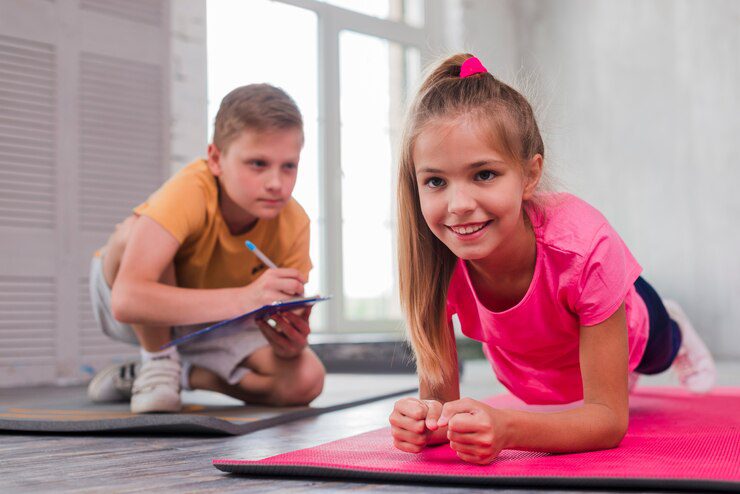Let’s face it, the idea of a mini-me athlete pumping iron and chugging protein shakes is more #fitnessfail than #fitspo. But that doesn’t mean getting kids active has to be a yawn-fest. Training programs for children’s fitness need a whole different playbook compared to adult routines. Think less boot camp and more jungle gym jungle.
Here’s the thing: according to a 2023 report by the Centers for Disease Control and Prevention, nearly 1 in 5 children in the US are obese. That’s a stat that’s enough to make any parent want to lace up their sneakers and get their little ones moving. But the key is making fitness fun, engaging, and developmentally appropriate. So, ditch the adult-sized expectations and dive into the quirky world of training programs for children’s fitness.
Beyond Burpees: Fun is the Focus
Forget the idea of children mimicking adult exercise routines. Training programs for children’s fitness should be built around the concept of play-based learning. Think obstacle courses, tag games, and dance parties – activities that disguise the fact that kids are actually getting a workout.
These programs tap into a child’s natural love for movement and exploration. They focus on building fundamental motor skills like jumping, running, throwing, and catching, laying the groundwork for a lifetime of physical activity.
The Power of Play: Beyond Mere Enjoyment
Play isn’t just about giggles and sunshine (although those are definitely important elements!). Here’s why play-based activities are the secret weapon of training programs for children’s fitness:
Development Boost: Play helps with cognitive development, motor skills, coordination, and even social skills as children learn to interact and collaborate with others.
Motivation Magic: Play is inherently motivating for children. They’re more likely to stick with an activity they enjoy, leading to consistent participation in the program.
Confidence Builders: Mastering physical skills builds confidence and self-esteem, encouraging children to embrace an active lifestyle.
The Playlist Factor: Music Makes You Move
Music has a magical power to motivate and energize. Training programs for children’s fitness often leverage the power of upbeat tunes to get kids moving. Think dance-based workouts, running games with catchy soundtracks, and even incorporating rhythmic movement into traditional exercises.
Think about it: jumping jacks are way more fun fitness games for kids when paired with a high-energy song!
The Team Spirit Advantage: Buddies and Groups
Training solo can be tough for anyone, especially youngsters. Training programs for children’s fitness often create a sense of community and camaraderie by incorporating group activities. Children work together, learn from each other, and find motivation in the friendly competition.
Focus on Progress, Not Perfection
Forget about pushing kids to their athletic limits. Training programs for children’s fitness should focus on celebrating progress, no matter how small. A high five for mastering a new jump rope trick or a pat on the back for finishing a lap around the track are powerful motivators for young athletes.
The Power of Parents: Setting a Positive Example
Kids learn by example. If parents are active and embrace a healthy lifestyle, it’s far more likely that children will follow suit. So, become a part of the solution! Join your kids in their fitness activities, participate in family workouts, and lead by example.
Technology Takeover: Apps and Gamification
Technology can be a powerful tool for promoting fitness in children. There are a plethora of apps and games that use interactive elements, virtual rewards, and storytelling to make exercise engaging. Just remember, screen time should be limited, so use technology as a supplement, not a replacement for traditional play-based activities.
Fueling the Fun: Nutrition for Little Athletes
Training programs for children’s fitness often go beyond exercise and delve into the importance of healthy eating. Teaching kids about nutritious choices and proper hydration helps them understand the connection between food and their physical performance.
The Takeaway: Building a Healthy Foundation
Training programs for children’s fitness are about more than just sculpted abs and sculpted biceps. They’re about instilling a love for movement, building a strong foundation for lifelong health, and creating positive memories associated with physical activity. So, ditch the drill sergeant approach and embrace the world of play-based fitness. You might just raise healthy, active, and happy mini-mes who see exercise as a fun adventure, not a chore. After all, fitness should be a lifelong journey, not a sprint to the finish line.







